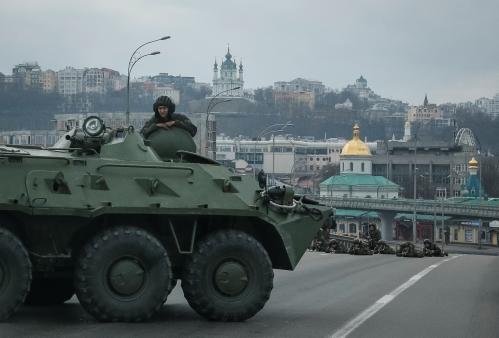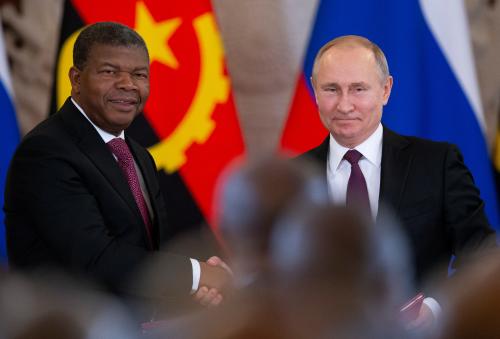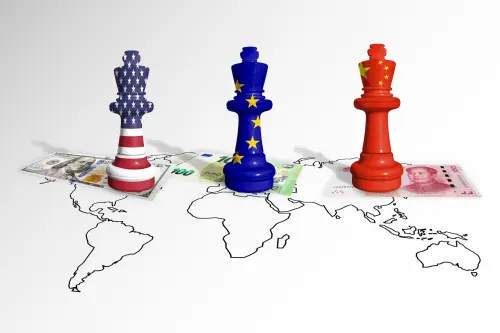In an emergency session on March 2, 2022, the United Nations (U.N.) voted on a resolution to condemn Russia’s invasion of Ukraine. Among other statements, the resolution “[d]eplores in the strongest terms the aggression by the Russian Federation against Ukraine, “[d]emands that the Russian Federation immediately cease its use of force against Ukraine and to refrain from any further unlawful threat or use of force against any Member State,” and “[d]emands that the Russian Federation immediately, completely and unconditionally withdraw all of its military forces from the territory of Ukraine within its internationally recognized borders.”
While the resolution saw widespread support across U.N. members as a whole, African countries were divided in their votes: In fact, 28 out of the 54 African countries (just over 51 percent) represented in the U.N. voted in favor of the resolution (Figure 1), a sharp contrast to the 81.29 percent of non-African countries that voted in favor of the resolution. Of the 35 countries that voted to abstain, 17 (48.6 percent) were African—including Algeria, Angola, and South Africa. Eight African countries, including Cameroon, Ethiopia, and Morocco, did not submit a vote, and only one African country, Eritrea, voted against the resolution, a sentiment shared only by Belarus, Russia, North Korea, and Syria.
Figure 1. African countries’ votes on the United Nations resolution to condemn Russia’s invasion of Ukraine
Source: Carlos Mureithi, “How African countries voted on Russia’s invasion of Ukraine,” Quartz, 2022.
Statements by African leaders have exemplified these divisions. For example, South African President Cyril Ramaphosa said the resolution “did not foreground the call for meaningful engagement” between Russia and Ukraine, and that it “does not provide the encouragement and international backing that the parties need to continue with their efforts.” On the other hand, the Kenyan ambassador to the U.N., Martin Kimani, strongly condemned Russia’s actions, offering harsh criticism of the incursion and “reaffirming Kenya’s respect for the territorial integrity of Ukraine within its internationally recognized borders.”
For more on Africa’s relations with Russia, see Joseph Siegle’s Foresight Africa viewpoint, “The future of Russia-Africa relations.” For more on the crisis’ geopolitical ramifications for Africa, see Brookings Rubenstein Fellow Danielle Resnick’s blog, “What does the war in Ukraine mean for Africa?”
The Brookings Institution is committed to quality, independence, and impact.
We are supported by a diverse array of funders. In line with our values and policies, each Brookings publication represents the sole views of its author(s).








Commentary
Figure of the week: African countries’ votes on the UN resolution condemning Russia’s invasion of Ukraine
March 9, 2022